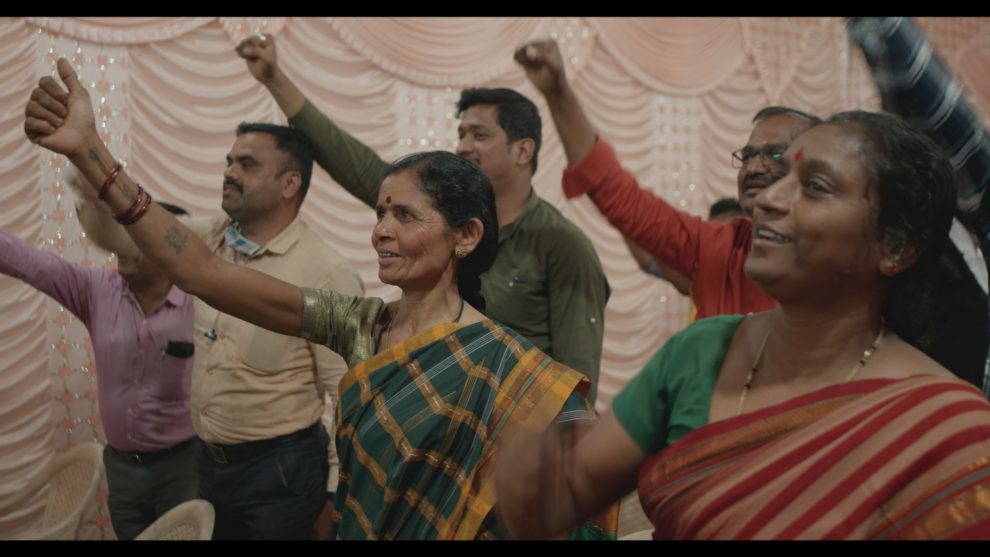Winner of the New Currents Award at this year's Busan, “Shivamma” is still continuing its festival run in 2023, while expected to premiere in India in 2024.
Shivamma is screening at Black Movie

Shivamma is a poor, middle-aged woman who is trying to support her family, including a bed-ridden husband, a not so bright daughter who is in an age to get married and a brattish son, by selling the energy drink Nuracle to whomever she can. Obviously a pyramid scheme, the selling of a liquid with dubious results remains the only source of income and hope for her, with the company's slogan, ‘I will do it!' having become her own motto. The difficulties she has to face, however, mostly having to do with money, pile up, and her job becomes more and more difficult. She keeps on though.
Jaishankar Aryar directs a film that looks like a documentary, both due to Vikas Urs and Saumyananda Sahi's cinematography, which includes many close ups and a quality of image stripped of any beautification, and the cast, most of which are untrained actors playing themselves. The result is highly realistic, with the overall presentation benefitting the most by the mix of a fiction narrative with the aesthetics of the documentary.
Through this approach, Aryar presents his two main themes. The first one is the whole concept of pyramid schemes, which works in India as it does in the rest of the world. Sellers, frequently with no other money-making option, are being tricked through fake portrayals of success and innumerable riches to sell products of at least dubious nature, by lying to their potential buyers. The “feast” the company holds highlights this aspect quite eloquently. The second is the life of the poor in Koppala District, in Karnataka, and how difficult it is for many of the inhabitants, as they have to juggle their financial issues with strict traditions and a number of unwritten laws. In that fashion, through Shivamma and her daughter, Aryar also shows the difficulties women face in India today, with these two aspects being portrayed throughout the movie, in a way that makes the dramatic events that follow, inevitable.
The fact that Shivamma gets pinned down again and again, by relatives, her son, her community, the people she loans money from, her customers and essentially everyone around her is a central element of the movie, that showcases both her character, and the fact that her desperate life has given her no alternative. At the same time, however, her overall demeanor and her constant eagerness to fight, particularly since her words are almost always abrupt, and the fact that she continues selling even when she learns about the reality of the product, make her a character that is very difficult to like or even feel sorry for. That the movie retains interest from beginning to end, even with such a protagonist, emerges as a trait that should be attributed to both Sharanamma Chetti's acting in the titular role, and Aryar's overall direction, who portrays life as is, in another aspect that intensifies the permeating realism of the movie.
His own, and Chandan CM's editing retains a pace that is relatively slow, essentially mirroring the life in the area, although a number of cuts and the amount of episodes give a sense of speed and motion to the movie that is quite welcome.
“Shivamma” is definitely a raw film, and the fact that it is the director's debut becomes apparent on a number of occasions. However, his unusual approach towards themes that are almost always reserved for art-house films or documentaries is truly fresh, and the one that elevates the movie much above the plethora of similar titles met in festivals around the world. As such, Aryar emerges as a director that is definitely worth following.
















